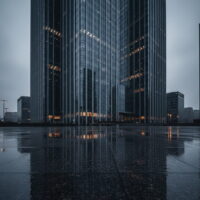As the sun dipped low over the Basque coastline on September 26, 2025, the San Sebastian International Film Festival pulsed with the kind of electric anticipation that only comes from a collision of art, activism, and star power. Jennifer Lawrence, the Oscar-winning actress whose unfiltered candor has long been her hallmark, stepped into the spotlight not just to celebrate her latest project but to deliver a searing indictment of global injustices. At 35, Lawrence—clad in a sweeping, train-like T-shirt from Phoebe Philo’s latest collection that she playfully hoisted like a royal gown—accepted the festival’s prestigious Donostia Award, becoming its youngest recipient in history. But it was her words on the Gaza crisis and the erosion of American political integrity that ignited a firestorm, thrusting her back into the global conversation with a force that echoed her breakout role in The Hunger Games over a decade ago.
The festival, in its 73rd edition, has always been a haven for bold cinema and unapologetic discourse, drawing filmmakers and stars who thrive on the edge of convention. Lawrence’s appearance marked a triumphant return to the promotional circuit after a deliberate hiatus focused on family life with husband Cooke Maroney and their two young children. Her new film, Die, My Love, a psychological thriller directed by Lynne Ramsay and co-starring Robert Pattinson, screened to rapturous acclaim, blending visceral horror with intimate family drama. Critics hailed it as a career pinnacle, with Lawrence’s portrayal of a mother unraveling amid rural isolation drawing comparisons to her raw intensity in Winter’s Bone.
Yet, beyond the red carpet glamour—where Lawrence turned heads in low-rise baggy jeans and pointed flats that nodded to fall 2025’s counterintuitive footwear trends—the evening’s true resonance lay in her unscripted monologue. “What’s happening in Palestine is no less than a genocide, and it’s unacceptable,” she declared, her voice steady but laced with the tremor of personal anguish. She elaborated on her terror for her children’s future, decrying a political landscape where empathy is a casualty and lies are currency. This wasn’t a celebrity soundbite; it was a clarion call, amplified by the festival’s international stage and rippling across social media within minutes.
Lawrence’s statement didn’t emerge in a vacuum. For months, whispers of her evolving worldview had circulated in industry circles, fueled by her quiet support for humanitarian causes through her production company, Excellent Cadaver. Founded in 2018, the banner has championed female-led stories with social bite, from the poignant Don’t Look Up to the upcoming Bread & Roses, a documentary on Afghan women’s resistance. At San Sebastian, she tied these threads together, urging audiences to direct their ire at elected officials rather than artists. “Our fear in speaking out is that our words will fuel more rhetoric,” she said, “but staying silent normalizes the unthinkable.”
The reaction was swift and polarized. Supporters flooded X (formerly Twitter) with praise, hailing her as a voice for the voiceless in an industry often accused of complicity. Palestinian activists amplified her words, sharing footage of the speech alongside stark visuals from Gaza. Conversely, pro-Israel voices accused her of oversimplification, while some Hollywood insiders fretted over potential backlash at the box office. Lawrence, ever the pragmatist, addressed this head-on: “Actors shouldn’t take the heat for those responsible.” Her candor recalled her 2016 essay on Hollywood sexism, a missive that reshaped industry conversations.
Delving deeper into her remarks on U.S. politics, Lawrence painted a grim portrait of a democracy adrift. She lamented the normalization of deceit among leaders, warning that the 18-year-olds voting today would inherit a world where integrity is obsolete. “When you ignore one side of the world, it won’t be long until it’s knocking on your door,” she cautioned, linking domestic apathy to international atrocities. This wasn’t mere rhetoric; it echoed her past endorsements, from Hillary Clinton in 2016 to grassroots voter mobilization efforts in 2020 and 2024. As the 2026 midterms loom, her words could galvanize young voters, much like her role in Mothers’ Day protests against abortion bans.
To understand the weight of Lawrence’s intervention, one must trace her journey from Kentucky roots to global icon. Born in 1990 in Louisville, she was a tomboy with a fierce independent streak, dropping out of school at 14 to pursue acting in New York. Her early auditions were a grind—rejections piled high until Silver Linings Playbook in 2012 catapulted her to stardom, earning her the youngest Best Actress Oscar at 22. That win wasn’t just a trophy; it shattered glass ceilings, proving that unpolished authenticity could outshine polished perfection.
But success brought scrutiny. The Hunger Games franchise, grossing nearly $3 billion, typecast her as Katniss Everdeen, the reluctant revolutionary—a role that mirrored her own growing political awakening. Off-screen, she navigated body-shaming trolls with humor, famously quipping about her “thunder thighs” while advocating for equal pay. Her 2014 Vanity Fair cover, where she discussed the Sony hack’s gender disparities, became a feminist touchstone. Yet, Lawrence has always balanced fire with vulnerability, retreating from the spotlight post-2019’s Dark Phoenix to prioritize mental health and motherhood.
Today, as a mother of two—a son born in 2022 and a daughter in 2024—her activism feels more urgent, infused with parental stakes. “I’m terrified for my children, for all of our children,” she confessed at San Sebastian, her eyes glistening under the theater lights. This personal lens has sharpened her focus, leading to partnerships with organizations like Time’s Up and the ACLU. Her influence extends beyond borders; in Europe, where Die, My Love premieres amid festival buzz, she’s a symbol of Hollywood’s potential for moral reckoning.
Shifting gears to her artistic resurgence, Die, My Love stands as a testament to Lawrence’s fearless range. Adapted from Ariana Harwicz’s novel, the film plunges into the psyche of a woman whose love for her family curdles into obsession and violence. Ramsay, known for We Need to Talk About Kevin, crafts a nightmarish tableau of postpartum despair and rural claustrophobia, with Lawrence’s performance anchoring the chaos. Pattinson, her co-star as the beleaguered husband, brings a haunted subtlety that complements her ferocity, their chemistry crackling with unspoken menace.
Filming wrapped in 2024 amid Scotland’s misty highlands, a location that mirrored the story’s oppressive atmosphere. Lawrence immersed herself methodically, drawing from her own brushes with anxiety to embody the protagonist’s unraveling. Early reviews from San Sebastian rave about its unflinching gaze: “A horror of the heart,” one critic wrote, praising how it dissects motherhood’s unspoken horrors without sentimentality. Set for a November 7 U.S. release via MUBI, the film positions Lawrence for another awards sweep, potentially her third Oscar nod in dramatic territory.
Beyond this, whispers of a Martin Scorsese collaboration swirl. Reports suggest Lawrence is in talks for What Happens at Night, a 2027 adaptation of Colson Whitehead’s novel, where she’d share top billing with heavyweights like Leonardo DiCaprio. If realized, it’d mark her as the highest-billed woman in a Scorsese film in over two decades—a milestone long overdue. Scorsese, who once called her “the best actress of her generation,” has praised her blend of grit and grace, qualities that shine in indie darlings like Joy and mother!.
Lawrence’s off-screen evolution is equally compelling. Her fashion choices at San Sebastian—a mix of Philo’s minimalist chic and Dior’s pre-fall whimsy—have reignited style conversations. The caped T-shirt with its absurdly long train became an instant meme, symbolizing her playful defiance of red-carpet norms. Paired with low-rise jeans that herald fall 2025’s Y2K revival, she embodied effortless cool, proving that motherhood hasn’t dimmed her trendsetting edge. Fashion watchers note her affinity for layered looks, like skirts over pants, breaking unspoken rules with polarizing panache.
Personally, life with Maroney remains a grounding force. The art dealer, whom she married in 2019, shares her low-key vibe; their New York brownstone is a haven of normalcy, complete with weekend hikes and family game nights. Lawrence has spoken candidly about the joys and pitfalls of fame’s glare on her kids, advocating for stricter paparazzi laws. Her production slate reflects this maturity: Upcoming is The Wives, a thriller based on Tarryn Fisher’s novel, where she produces and stars alongside Sydney Sweeney.
Yet, amid triumphs, challenges persist. The industry she helped transform still grapples with equity; Lawrence has called out persistent pay gaps and the underrepresentation of women over 30 in leads. Her Excellent Cadaver banner counters this, greenlighting diverse voices like Causeway, her 2022 directorial debut that explored veteran trauma with quiet power. As she navigates these waters, Lawrence remains a beacon for aspiring artists—proof that vulnerability fuels strength.
The Broader Impact: Why Lawrence’s Voice Matters Now
In an era of algorithmic outrage and fleeting attention, Lawrence’s San Sebastian speech cuts through the noise. It arrives at a inflection point for Hollywood, where stars like Mark Ruffalo and Susan Sarandon have faced blacklisting for pro-Palestine stances, yet a new generation demands accountability. Her framing—separating artists from policymakers—offers a blueprint for ethical engagement, encouraging fans to channel energy into voting and advocacy rather than celebrity shaming.
Globally, the timing aligns with escalating tensions. As the Israel-Hamas conflict enters its third year, with over 40,000 Palestinian deaths reported by UN tallies, voices like Lawrence’s amplify calls for ceasefires and aid. Her words echo those of international figures at the UN General Assembly, where youth delegates decried “genocidal rhetoric.” Back home, they fuel debates on free speech, especially post-2024’s contentious election cycle, where misinformation reigned.
To unpack her influence further, consider these key facets of Jennifer Lawrence’s enduring appeal:
- Authenticity in an Inauthentic World: Lawrence’s refusal to curate her image— from tripping on Oscars stages to blunt interviews—has endeared her to millions. This rawness stems from her Midwestern upbringing, where straight talk trumped pretense, allowing her to connect across demographics. In today’s filtered social media landscape, her genuineness feels revolutionary, inspiring fans to embrace imperfections.
- Pioneering Female Empowerment: From demanding equal pay post-Sony hack to producing women-centric films, Lawrence has dismantled barriers. Her 2015 Lena Dunham collaboration on a reproductive rights op-ed galvanized movements like #MeToo. Today, this legacy empowers emerging talents like Zendaya, who credit her for normalizing fierce negotiations in male-dominated boardrooms.
- Activism Rooted in Empathy: Unlike performative allyship, Lawrence’s causes arise from lived experience—motherhood sharpening her Gaza stance, personal anxiety informing mental health advocacy. She’s donated millions to girls’ education via the Malala Fund and lobbied for climate action with Leonardo DiCaprio. This depth ensures her endorsements, like for gun control post-Parkland, resonate as sincere rather than opportunistic.
- Versatile Artistic Range: Spanning blockbusters to arthouse, Lawrence defies pigeonholing; X-Men mutants gave way to Passengers’ sci-fi romance and No Hard Feelings’ raunchy comedy. Her chameleon-like shifts keep audiences hooked, with Die, My Love showcasing a return to dramatic roots. This adaptability not only sustains her box-office clout but elevates indie cinema’s visibility.
- Maternal Modernization of Stardom: Post-baby, Lawrence redefines work-life balance, turning down roles that demand grueling schedules. Her advocacy for on-set childcare and flexible shoots influences studios like A24. This shift normalizes family priorities for women in Hollywood, challenging the “muse or mom” dichotomy that sidelined predecessors like Julia Roberts.
- Cultural Commentary Catalyst: Lawrence’s quips on feminism and body positivity, like her 2014 “fuck you” to trolls, spark dialogues that outlast headlines. Her podcast appearances dissect fame’s toll, fostering empathy for celebrities as humans. In 2025, amid AI deepfakes scandals, her calls for digital ethics position her as a forward-thinking guardian of truth.
- Global Bridge-Builder: At festivals like San Sebastian, Lawrence fosters cross-cultural exchanges, her Spanish fluency charming locals. Collaborations with international talents, from Causeway’s Northern Irish crew to Bread & Roses’ Afghan directors, highlight her borderless vision. This cosmopolitanism counters Hollywood’s insularity, enriching narratives with diverse perspectives.
These elements coalesce into a portrait of a star who’s not just surviving Hollywood but reshaping it, her San Sebastian moment a microcosm of broader currents.
Looking ahead, Lawrence’s trajectory promises more disruption. With Die, My Love poised for awards chatter and Scorsese rumors solidifying, 2026 could crown her a triple-crown contender. Her production company eyes expansions into TV and VR, blending narrative innovation with social impact. Personally, she teases a memoir in the vein of Educated, chronicling fame’s double-edged sword.
Fashion remains a joyful outlet; expect more Philo-inspired minimalism, perhaps a capsule collection collaboration. As for activism, she’ll likely double down, partnering with groups like Doctors Without Borders for Gaza relief. Her message is clear: Art and advocacy aren’t silos but intertwined forces for change.
In the festival’s afterglow, Lawrence slipped away for a quiet dinner with Ramsay and Pattinson, toasting to stories that unsettle. It’s a fitting coda to a day that reaffirmed her as Hollywood’s conscience—a woman whose whisper can roar.
Conclusion: A Legacy in Motion
Jennifer Lawrence’s San Sebastian sojourn wasn’t merely a promotional pit stop; it was a manifesto, blending artistic triumph with unflinching moral clarity. From the blood-soaked intimacy of Die, My Love to her genocide denouncement, she embodies cinema’s power to provoke and heal. As global fissures deepen, her voice—honed by hardship and heart—remains a vital thread in the tapestry of resistance. In an industry often paralyzed by profit, Lawrence charges forward, reminding us that true stardom lies in speaking truths that tremble the status quo. Her journey, far from over, invites us all to join the fray, one courageous word at a time.














